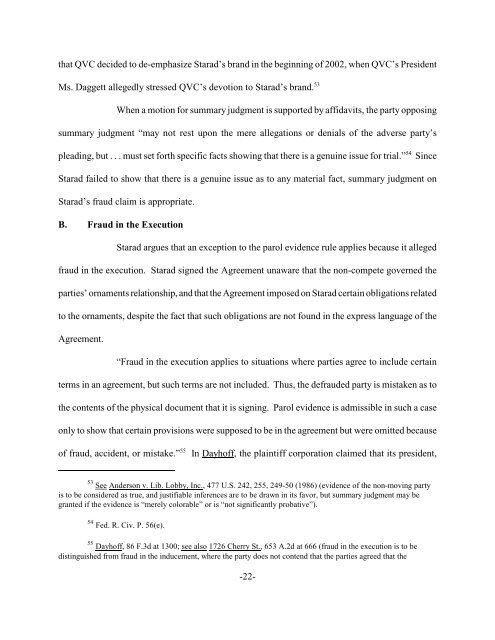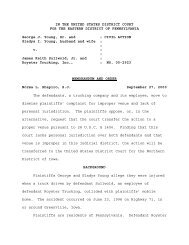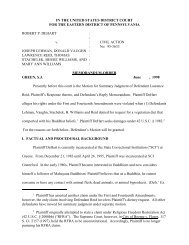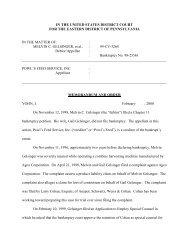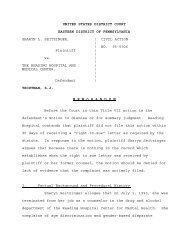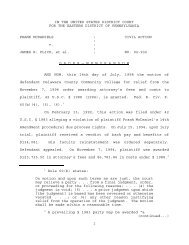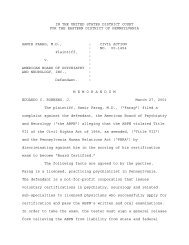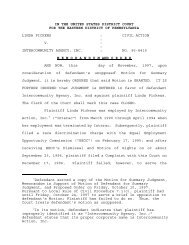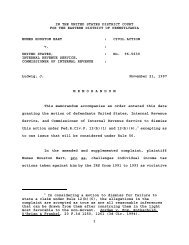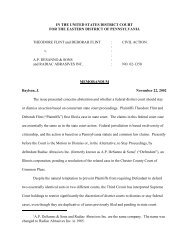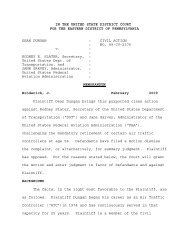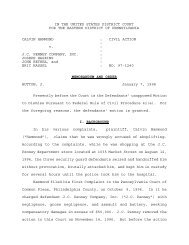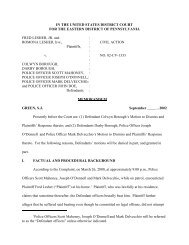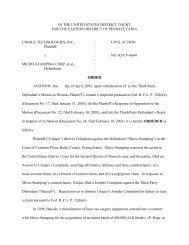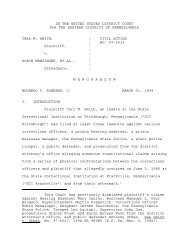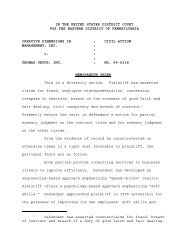united states district court - Eastern District of Pennsylvania
united states district court - Eastern District of Pennsylvania
united states district court - Eastern District of Pennsylvania
Create successful ePaper yourself
Turn your PDF publications into a flip-book with our unique Google optimized e-Paper software.
that QVC decided to de-emphasize Starad’s brand in the beginning <strong>of</strong> 2002, when QVC’s President<br />
Ms. Daggett allegedly stressed QVC’s devotion to Starad’s brand. 53<br />
When a motion for summary judgment is supported by affidavits, the party opposing<br />
summary judgment “may not rest upon the mere allegations or denials <strong>of</strong> the adverse party’s<br />
pleading, but . . . must set forth specific facts showing that there is a genuine issue for trial.” 54 Since<br />
Starad failed to show that there is a genuine issue as to any material fact, summary judgment on<br />
Starad’s fraud claim is appropriate.<br />
B. Fraud in the Execution<br />
Starad argues that an exception to the parol evidence rule applies because it alleged<br />
fraud in the execution. Starad signed the Agreement unaware that the non-compete governed the<br />
parties’ ornaments relationship, and that the Agreement imposed on Starad certain obligations related<br />
to the ornaments, despite the fact that such obligations are not found in the express language <strong>of</strong> the<br />
Agreement.<br />
“Fraud in the execution applies to situations where parties agree to include certain<br />
terms in an agreement, but such terms are not included. Thus, the defrauded party is mistaken as to<br />
the contents <strong>of</strong> the physical document that it is signing. Parol evidence is admissible in such a case<br />
only to show that certain provisions were supposed to be in the agreement but were omitted because<br />
<strong>of</strong> fraud, accident, or mistake.” 55 In Dayh<strong>of</strong>f, the plaintiff corporation claimed that its president,<br />
53 See Anderson v. Lib. Lobby, Inc., 477 U.S. 242, 255, 249-50 (1986) (evidence <strong>of</strong> the non-moving party<br />
is to be considered as true, and justifiable inferences are to be drawn in its favor, but summary judgment may be<br />
granted if the evidence is “merely colorable” or is “not significantly probative”).<br />
54 Fed. R. Civ. P. 56(e).<br />
55 Dayh<strong>of</strong>f, 86 F.3d at 1300; see also 1726 Cherry St., 653 A.2d at 666 (fraud in the execution is to be<br />
distinguished from fraud in the inducement, where the party does not contend that the parties agreed that the<br />
-22


